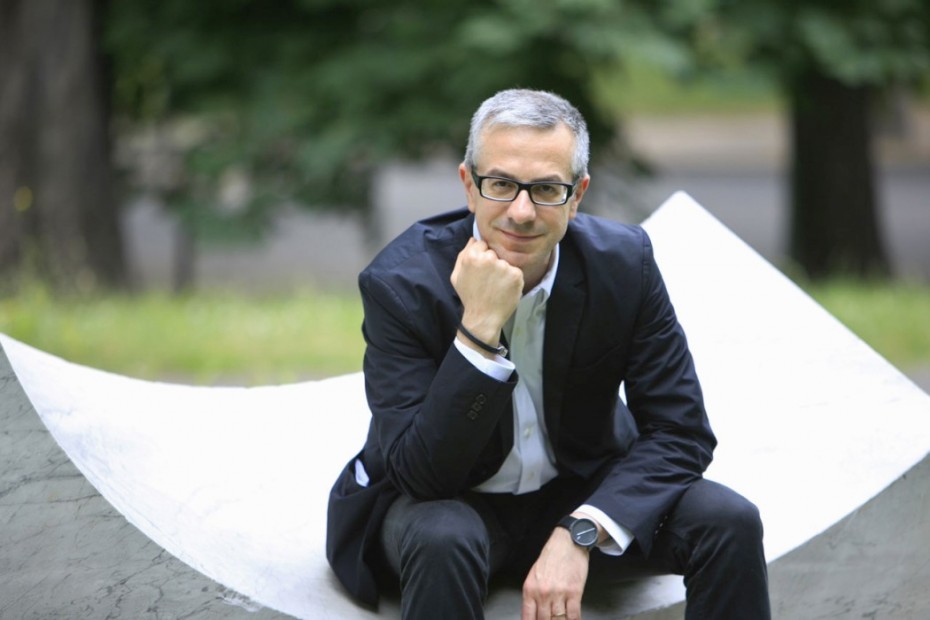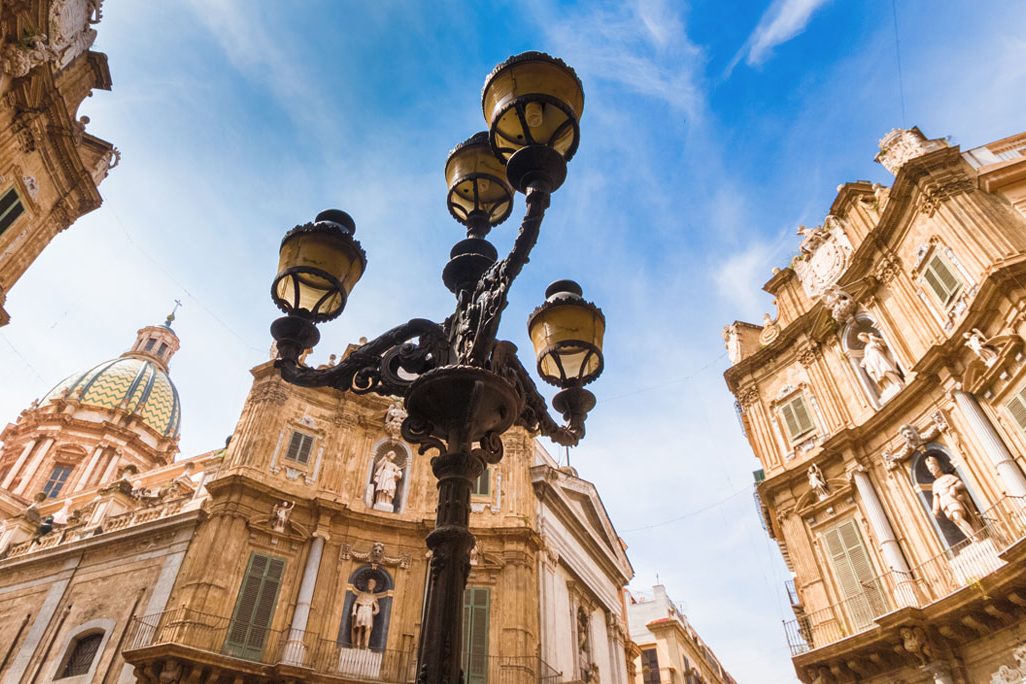Italian cinema continues to be one of the dominant voices in the world.
The selection of the 2014 Toronto International Film Festival provides a glimpse of the incredible diversity of Italian cinema ranging from audience-driven genre films to powerful documentaries.
This year’s program stands out as proof that contemporary Italian cinema is, more than ever, a genuine melting pot open to the world with an amazing capacity to combine cultural and multi-ethnic influences.
It reminds us that Italy is still a vibrant creative hub for both independent and mainstream cinema on the world stage.
Several films especially appreciated by the audience and worth seeing are:
Hungry Hearts by Saverio Costanzo and Leopardi, Il Giovane Favoloso by Mario Martone.
HUNGRY HEARTS is a small budget movie set in New York and starring Adam Driver as Jude and Alba Rohrwacher as Mina, both awarded the Volpi Cup as best actor and best actress a few days ago in Venice. Jude and Mina fall in love, get married and have a child, whom Mina wants to protect from the outside world and its contamination. She hides the baby from the world and through a peculiar nutritional program puts his life in danger. The film, according to the director, Saverio Costanzo — director also of the critically acclaimed The Solitude of Prime Numbers — intends to show the dramatic transition from being a couple to becoming parents, with the emotional trauma and responsibility it involves. Costanzo’s brilliant screenplay is based on the novel Il bambino Indigo (Indigo Child) by Venetian Marco Franzoso.
The film Hungry Hearts becomes increasingly gothic in tone and feel as the eerie logic of its plot unfolds within the confines of the New York apartment where the couple lives. Distorted wide-angles mingle with ominous overhead shots as the drama unfolds because the director uses his camera on his shoulder so as to, he says, maintain a symbiotic relationship with his characters. The child’s life is thus held in a precarious balance until the relationship between the overprotective mother and the more rational father snaps and the domestic tragedy relentlessly explodes.
International Premiere
109 minutes/colour English. Screenplay: Saverio Costanzo; music: Nicola Piovani; principal cast: Adam Driver, Alba Rohrwacher; production: Wildside, Rome
LEOPARDI, Il giovane favoloso
Directed by Mario Martone
Equally compelling and riveting is the story of Leopardi, a major Italian poet, essayist, philosopher and philologist of the nineteenth century, as recounted in a memorable film by director Mario Martone. The interest in Giacomo Leopardi, the Dante of modern times, was first shown by Martone in a theatrical piece, when he decided a few years ago to stage his Operette Morali with great success in Turin, where he is presently the artistic director of Teatro Stabile. The love for Leopardi and his rich language deepened to the point that it developed into a film that explores in a broad fresco his entire brief life. The film starts in his birthplace, Recanati, a small town in what was then the Papal States, where he precociously became one of Italy’s finest lyric poets.
Like Mozart with his father Leopold, Giacomo Leopardi was a child prodigy and grew under the cultural tutelage of his father, Count Monaldo. His immense library provided him all there was to learn. Giacomo soon became an encyclopedic talent, devouring languages both ancient and modern. Gradually, however, he felt as though he were in a sort of prison, and he yearned to escape. From the window of his aristocratic house he constantly observed the daily life of the town.
Through poetry, young Leopardi, superbly acted by Elio Germano, undertook an internal liberating journey that would lead him to more clearly define his way of thinking: in the land of the Pope, at a time in which Catholicism reigned unchallenged (his mother was a fanatically devout Catholic), Leopardi’s worldview became increasingly secular and lucid, thanks to an inspiring correspondence with Pietro Giordani, an intellectual who recognized the genius of Leopardi, even though still an adolescent. This granted Leopardi a deep ability to discern the hypocrisies of the society in which he was living. He secretly became a rebel and a free thinker as he felt that the world outside was radically changing. The French revolution and the age of the Enlightenment were leading a new way.
After a failed attempt to flee, discovered by Count Monaldo, the walls of his painted cage within Recanati relentlessly closed in on him in. Only ten years later he managed to leave his home town for good and live for some time in Rome, Florence, Pisa and finally in Naples.The visionary poet soon discovered he was ill-suited to the hypocrisy of the literary salons and rejected every offer of work that might have limited his freedom of thought. He loved many women, without success. He ended up living with Antonio Ranieri, a young Neapolitan revolutionary on the run, who was aware of his talent and never left him. Along with his sister, the young man constantly and lovingly provided devoted assistance, taking down on paper the poems Giacomo dictated, once he had become almost blind. Their friendship was destined to last his lifetime.
The poet’s relationship with the intellectual society of his time in Italy worsened from year to year and Leopardi became increasingly marginalized and misunderstood, like Pier Paolo Pasolini a century later.
The isolation of the artist became the necessary existential condition, a source of creativity both at a receptive and expressive level.
Martone skilfully shows, as director, how the poet’s mind became gradually more free and lucid, once he abandoned any aspiration to be recognized by his contemporaries, while his body was rapidly and relentlessly deteriorating before his eyes. His encounter with Naples gave him a new intellectual levity and human dimension. He lived with Ranieri in poor working-class quarters of the city, where he constantly came across homeless people, thieves and prostitutes. Yet, Leopardi loved Naples and its unique nature.
Here he came to prefer the company of simple people he encountered in the local taverns to that of the luminaries of the Neapolitan intellectual society, always ready to judge and censor his books. He concluded his brief life in 1837, at the age of 38, in a house on the slopes of Mount Vesuvius looming over the villa with its burning lava and black smoke eerily enveloping everything. Here he composed La ginestra (The Broom) which, along with his last lyric poem, The Waning of the Moon, is considered his poetical testament and encompasses his philosophy, as well as his human experience. His final message is that only the drive and the power of the artist’s inner vision and illusions can make his painful life worth living. It is like the perfume of the broom which rises to the sky and brings consolation to the barren desert surrounding it at the foot of the mythical Neapolitan volcano.
Mario Martone has ventured both into the exterior and interior world of Leopardi. After Noi credevamo, a film on Italian Risorgimento, Martone wanted to persevere in his attempt to bring to light parts of the Italian literary and political past that are valuable to better understand our complex present, but this time not with an historical film. Leopardi, il giovane favoloso aims to tell the story of a soul, capturing the most significant moments of his short life, from his all-encompassing, encyclopedic formation in the father’s library in Recanati all the way to his untimely death in cholera-stricken Naples.
Italians still consider Leopardi one of their greatest intellects, and his thoughts have been said to “go beyond those of every other European man of letters, from Goethe to Paul Valéry”. Schopenhauer referred to Leopardi as his “spiritual brother.” His writings, even the early ones written in total seclusion, showed the influence of the Enlightenment and in many ways heralded the nihilism of Nietzsche, who considered him the most original poetic voice of the nineteenth century. Martone presents him as a radical thinker and surprisingly modern, though steeped in classical and early scientific thinking. Despite many accolades, Leopardi remained for a long time unknown in the mainstream anglophone world.
After years of toil, involving a team of translators in different countries, however, finally the publication of the first complete English translation of Leopardi’s famous notebook, the Zibaldone, is now available in the full unexpurgated edition. Martone is the daring director of this film of rediscovery of one of the lesser-known European great thinkers and poets and is confident that this publication will elicit the curiosity of anglophone readers and, hopefully, lead to the translation of all Leopardi’s works in many other languages. This film was created thanks to a special grant from the Italian Ministry of Cultural Heritage
Italy 2014
Italian
International Premiere
Music, Giacomo Rossini, Sascha Ring; principal cast: Elio Germano, Michele Riondino, Massimo Popolizio,
Anna Mouglalis; production, Palomar Spa.
SENZA NESSUNA PIETÀ and BLACK SOULS as well are not to be missed. They are by Michele Alaique and Francesco Munzi, two emerging Italian filmmakers who are absolutely unafraid to deal with a variety of topics that are especially provocative. Alhaique, a well-known Italian actor and author of a number of shorts, including Il Torneo, winner of the prestigious prize Nastro d’Argento, has recently directed his first feature film, Senza nessuna pietà, shown internationally for the first time in Toronto. It is apparent that his experience as an actor has given him an insight that very few directors are blessed with.
The film is a crime story and has the structure of a noir, but at some point action and love overlap. The action takes place in a metropolis – Rome in this case – but it could be any other big city, where the criminal element thrives. The protagonist, Mimmo, interpreted excellently by Pier Francesco Favino, is a stone mason, a quiet, tireless and loyal worker. The Roman director managed to recount masterfully Mimmo’s world of mob enforcer in a milieu of small-time criminality, violence, arrogance and treason. He is a strong, imposing figure, who can appear quite scary to those who do not know him. He observes the world with the eyes of a child without really taking part in daily life. He obeys superiors’ orders in an unquestioning and automatic – almost “absent” – way.
Although he is trapped in that milieu, he sees himself as not being part of it, without judging it. Tanya, interpreted by Greta Scarano, a superb stage actress, represents the turning point that overwhelms his existence. When he sees the way she is mistreated and humiliated by the boss’s son, he awakens from a life of immobility to discover that there are other values and feelings worth living for. Two solitudes meet (Mimmo and Greta) and their coming together becomes something unique, which skilfully avoids clichè and sentimentality. A new bond unites them and gives them the strength to break the chain that kept them passive for years, each of them in a different way. They both resurrect in themselves the capacity to rebel against a destiny that seems to have marked them once and for all. The director recounts Mimmo’s world through his eyes, as if the camera were following the beat of his heart, turning stone to flesh. The film reflects a dark stage in Italian history both from the socio-political and economic points of view, and seems to tell us that there is always a way out, even in the most difficult predicaments. Creativity has to be free.
Interestingly, the film is co-produced by actor Pier Francesco Favino in his new inclination to contribute collectively to valuable new projects and try to launch them beyond the borders of Italy in the context of international festivals. The soundtrack of the film involves two composers, one Italian, Luca Novelli, the other French, Pierre Alexander Busson. This film was created thanks to a special grant from the Italian Ministry of Cultural Heritage, and in collaboration with RaiCom.
International Premiere
Italy 2014
Italian
93 minutes colour
Producers: Maurizio Piazza, Alexandra Rossi, Pier Francesco Favino;
Music, Luca Novelli, Pier-Alexandre Busson; principal cast: Pier Francesco Favino, Greta Scarano, production: Lungta Film
BLACK SOULS /ANIME NERE
Directed by Francesco Munzi
Written by talented Francesco Munzi together with Gomorrah scribe Maurizio Braucci, Black Souls (Anime Nere) is a dark mob drama centred around a family of divided souls from Calabria’s Ndragheta and is based on the novel by Gioacchino Criaco. It is a fable of pride and power, of youth and experience, set in Amsterdam and Milan as well as in the small village of Aspromonte, in Calabria, a sort of Black Hole where it all began and where it will all end. It is a criminal story and yet, as the director of the Toronto International Film Festival maintains, a “morality tale” about breaking from the inside ancient and consolidated cycles of violence within the same family. It is the powerful story of three brothers: Luigi, an international drug dealer; Rocco, an apparently middle-class businessman living in Milan; and Luciano, the eldest, leading in Calabria an archaic life as a shepherd, trying with determination to escape his dark and sinister past, which however is what gave his family stature and wealth. His teenage son Leo has inherited from his ancestors only resentment and a sense of vendetta.
In a dimension suspended between the distant past and ultra-modern life, the characters are driven towards the archetypes of tragedy, many years after the murder of their father by a rival clan. They live a chain of lives consumed in a spiral of ruthless violence and death. This film tackles key current, anthropological and political issues and sparks a brave debate. It blends professional experience with a spirit of innovation and creativity: it was bravely shot, almost as a documentary, near Reggio Calabria in Africo, one of the nerve centres of organized crime. Overcoming his initial fear and prejudice, the director discovered in the process a very complex and diverse reality. This encouraged him to blend his professional actors with the local residents who spoke in their own archaic language (reminiscent of ancient Greek) and worked with the cast, adding an even more realistic touch to the whole story.
The production company is Cinemaundici, founded in 1998 in partnership with Ermanno Olmi.
Italy 2014
Italian
International Premiere
103 minutes
Music: Giuliano Taviani
PRINCIPAL CAST: Marco Leonardi, Peppino Mazzotta, Fabrizio Ferracane, Anna Ferruzzo, Stefano Priolo,Vito Facciolla and Cosimo Spagnolo.
LA SAPIENZA
Directed by Eugene Green
A French-Italian co-production not to be missed, a very special film deriving its title from the magnificent seventeenth- century Roman church Sant’Ivo alla Sapienza which was designed by the legendary Italian Swiss architect Francesco Borromini, Bernini’s rival. The protagonist, Alexandre Schmid (Fabrizio Rongione) is a brilliant architect who embarks on a quest of artistic and spiritual renewal along with his wife, Alienor (Christelle Prot) also in the attempt to overcome their lack of communication and passion.
They decide to start from Bissone in Canton Ticino, the birthplace of Borromini, and proceed from there their outer and inner journey. In Stresa they have a happy chance encounter with young siblings Goffredo (about to start his studies of Architecture at the University of Venice) and his fragile sister Lavinia which positively upsets the whole schedule of the couple. Alexandre will continue his travels with Goffredo while Alienor stays with Lavinia by the lake . The trip will take Alexandre and Goffredo to Turin and Rome as they gradually become enthralled by Italy’s artistic masterpieces. Borromini proves to be throughout the film the magical soothing shaman of the spirit, able to rekindle the inner vision of the spirit and provoke a series of life altering revelations.
And all of this is due also to a profound independent research of Eugene Green on the Baroque period since he was a stage director. Before the Baroque period there was no contradiction between faith and the scientific exploration. During the Baroque period the scientific research went on, God was still the highest Reality but it was hidden, visible only in representation. Therefore Borromini’s architecture became a powerful tool to reach spiritual integrity and enlightenment. While Bernini was integrated in the social fabric of his time, Borromini was isolated, a sort of sacrificial victim necessary to reach spiritual enlightenment. Another theme which is very vividly explored in this film is cultural transmission that somehow has been neglected and interrupted. This is reached in the film through the revitalizing relationship with young people, in this case, Goffredo and Lavinia, both closer to the source of youth and inner light.
The film presents sweeping panoramic shots of Rome and Borromini’s architecture. Following a number of materialist films that search for the immaterial, La Sapienza makes a plea for the preservation of history but also for the rekindling of human feelings and interaction in a world grown disenchanted and weary.




























